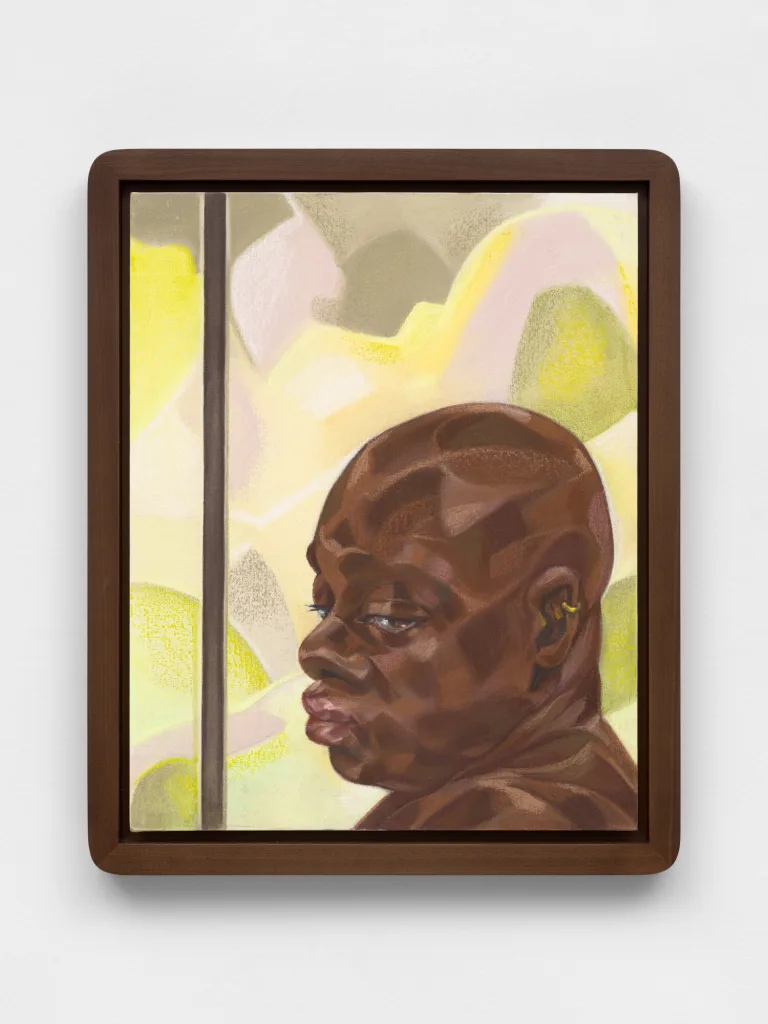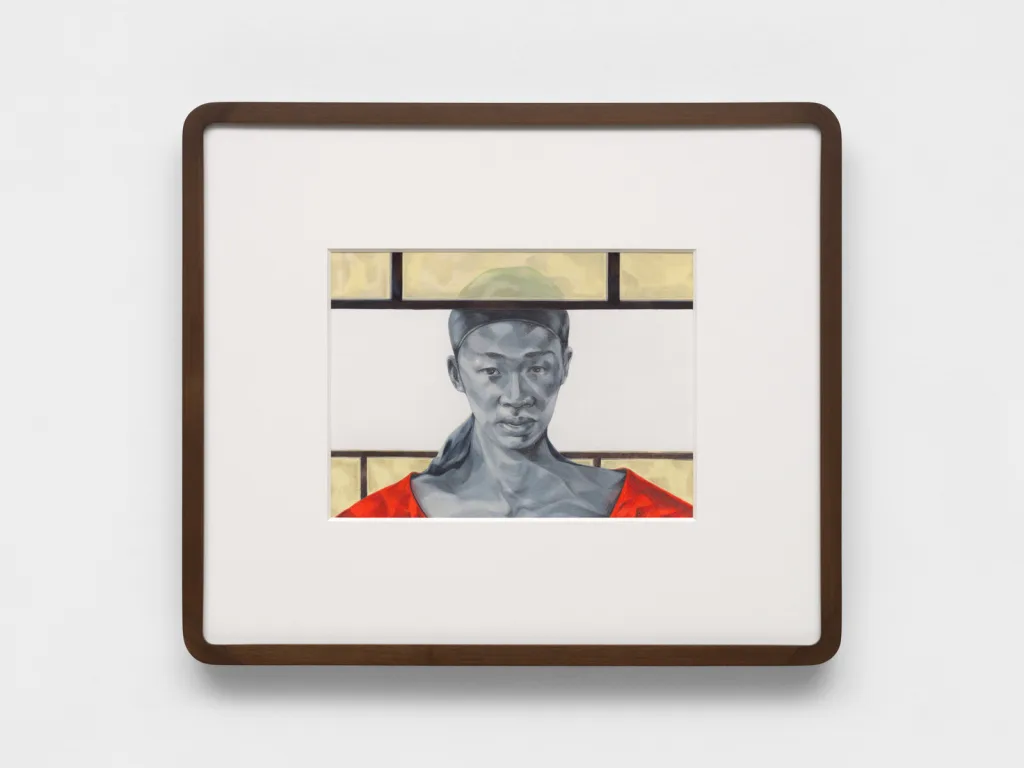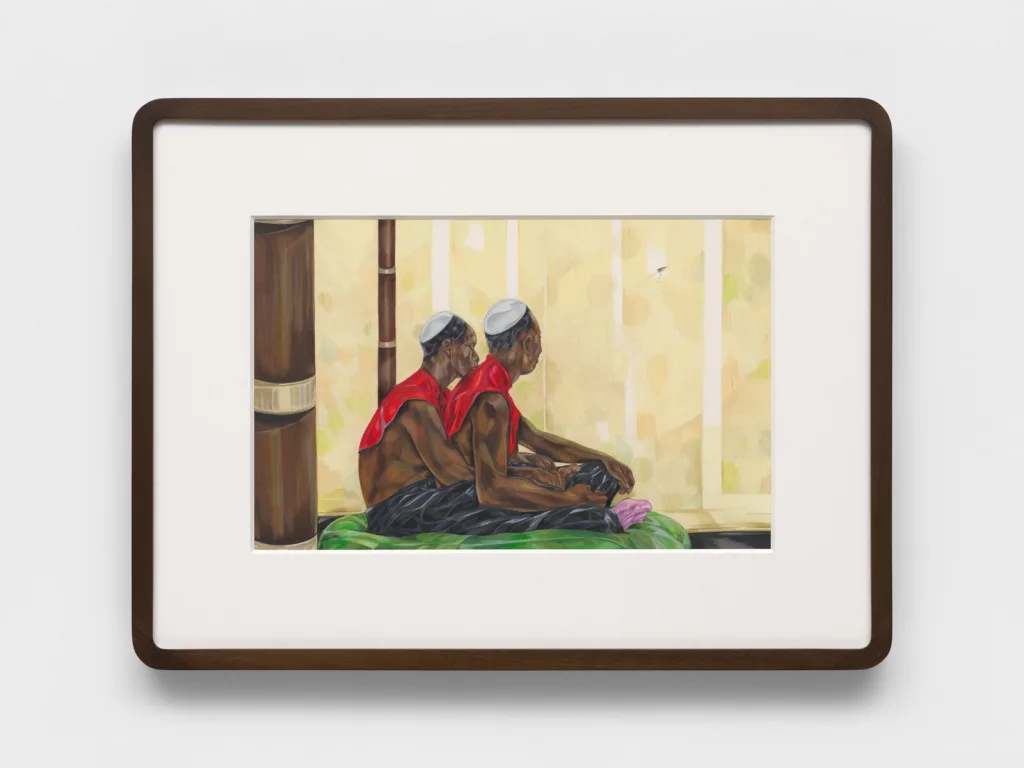Jack Shainman Gallery and Toyin Ojih Odutola present Ilé Oriaku, an exhibition of multimedia drawings and works on paper, Ojih Odutola’s seventh solo show with the gallery. Building upon her inclusion in the Nigerian Pavilion at the Venice Biennale and her solo exhibition at the Kunsthalle Basel, both in 2024, these works present episodic scenes that together explore the uses and limitations of language—including its beauty both in failure and success—as a vehicle for processing grief and as a tool for creating personal meaning and collective history.

The central site that each of these works unfolds in is an imaginary Mbari house, a sacred space rooted in the traditions of the Nigerian Owerri Igbo where members of the community could be celebrated and where deities, those who protect the community from supernatural acts of tragedy and misfortune, could be honored as well. Traditionally crafted from raw materials such as clay, wood and straw, these structures were typically adorned with figures, sculptures, geometric patterns and wall paintings depicting spiritual or mythological themes.
The Mbari house that Ojih Odutola has created pays tribute to her late grandmother and uncle who belonged to the Igbo and Yoruba ethnic groups, respectively: ‘Ilé’ means ‘house,’ ‘building,’ or ‘home’ in Yoruba, while ‘Oriaku’ is her grandmother’s Igbo name. This Mbari house functions as a dramatic stage for Ojih Odutola’s figures where they often seem caught in between poses or right before or after an exchange, while also providing a space of spiritual and cultural communion with her ancestors.

Though the Mbari house provides a culturally specific architectural reference, the actual spaces that Toyin Ojih Odutola creates from it are often fragmented, blurred and interrupted, such that her figures are rarely depicted free of obstructions. In a similar vein, her subjects regularly obscure their own faces with hands or pieces of clothing, or they appear with their backs turned or in profile. While the artist consistently renders what she has called her ‘spiritual performers’ in states of indeterminacy and transition—on the cusp of communication or in its immediate aftermath—she also portrays them in motion and caught between bodily positions.
She regularly uses titles that invoke the stage and its spaces of dramatic production, implying a narrative relation between the works while also creating dissonances between what the titles describe and what the drawings show. In spite of the shifts in perspective that happen around these figures, they are still imbued with great psychological presence and specificity, as she allows them to be read as portraits as much as spiritual ciphers, which means they ground us in the present while providing a link to the past.

In Ilé Oriaku, Toyin Ojih Odutola expresses her consideration of the ways that language, whether verbal or physical, can act as a barrier to communication just as much as it can facilitate it. Personal and cultural contexts remain crucial for her, specifically with regards to her and her family’s experience of existing between the languages and customs of their native Nigeria and those of the West. These figures and the scenes they live within are defined by their drive for familial and communal connection, regardless of any obstacle. By doing so, they suggest that new languages can still be created.
Coinciding with the exhibition is the launch of Ilè Oriaku, a new monograph that documents Ojih Odutola’s dual presentations at Kunsthalle Basel and the Nigerian Pavilion during the 2024 Venice Biennale. Designed by Pacific Books and co-published with Kunsthalle Basel, Ilè Oriaku offers a close look at the artist’s richly detailed and illustrative work that captures the nuances of her characters with exceptional precision while also directly examining her Nigerian heritage.
Similar to the exhibition at Kunsthalle Basel, the space of the publication evokes an imaginary Mbari house as a grid as taken from the exhibition walls and abstracted on the printed page to create a conceptual connection to the work and writing within. Scholarly texts by Mohamed Almusibli, Olamiju Fajemisin and Erin Jenoa Gilbert accompany creative contributions from Nelene Ojih Odutola, Toyin Ojih Odutola, Josephine Oriaku Ojih and Lynette Yiadom-Boakye. The exhibition runs until the 18th of July 2025.


